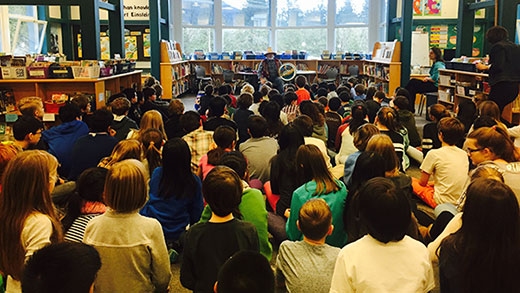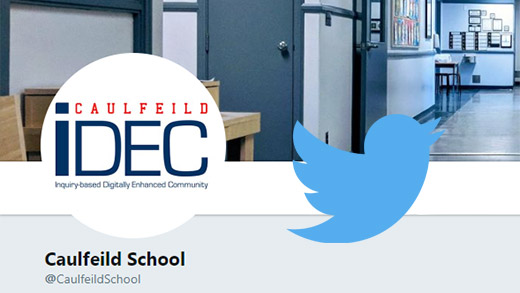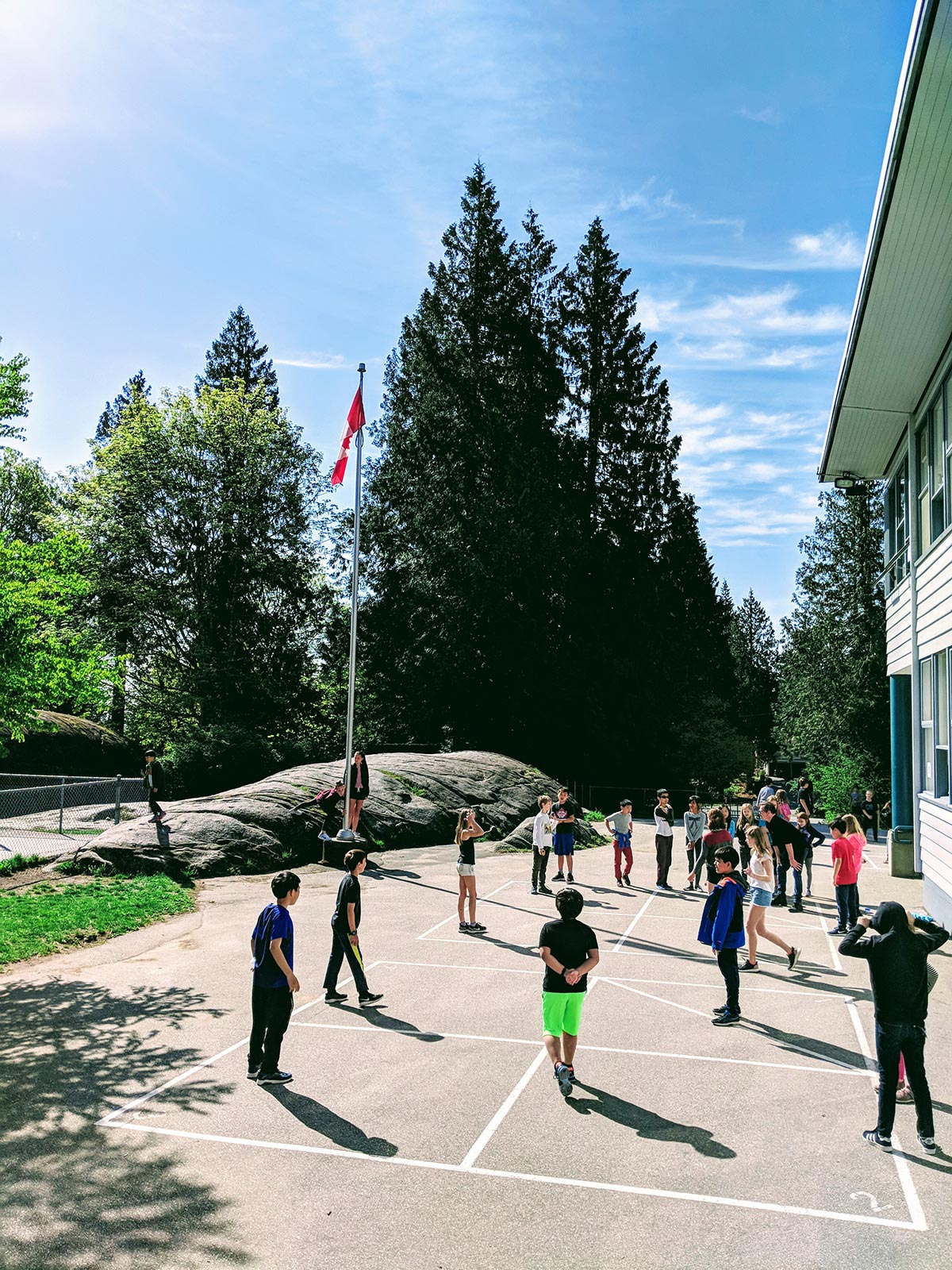
This is Us
The world is changing and we are changing with it. Caulfeild students are engaged in design and inquiry-based thinking, giving them the tools to problem solve and apply learning in a multitude of ways. We foster an entrepreneurial mindset, encouraging innovation and autonomy while embracing the synergy of collaboration. We teach our students to value process over product and our teachers are activators of learning that is rich and authentic. We build our success on the teaching of foundational skills that are vigorous and value the personal excellence of each and every child. All of this is done in learning spaces that are not the classroom you remember. Our micro-environments are designed to foster thinking, communication and collaboration. We have a common language, seamless integration of technology, staff collaboration and professional learning that challenges and inspires makes Caulfeild an excellent place to be. Come be at the forefront of learning.
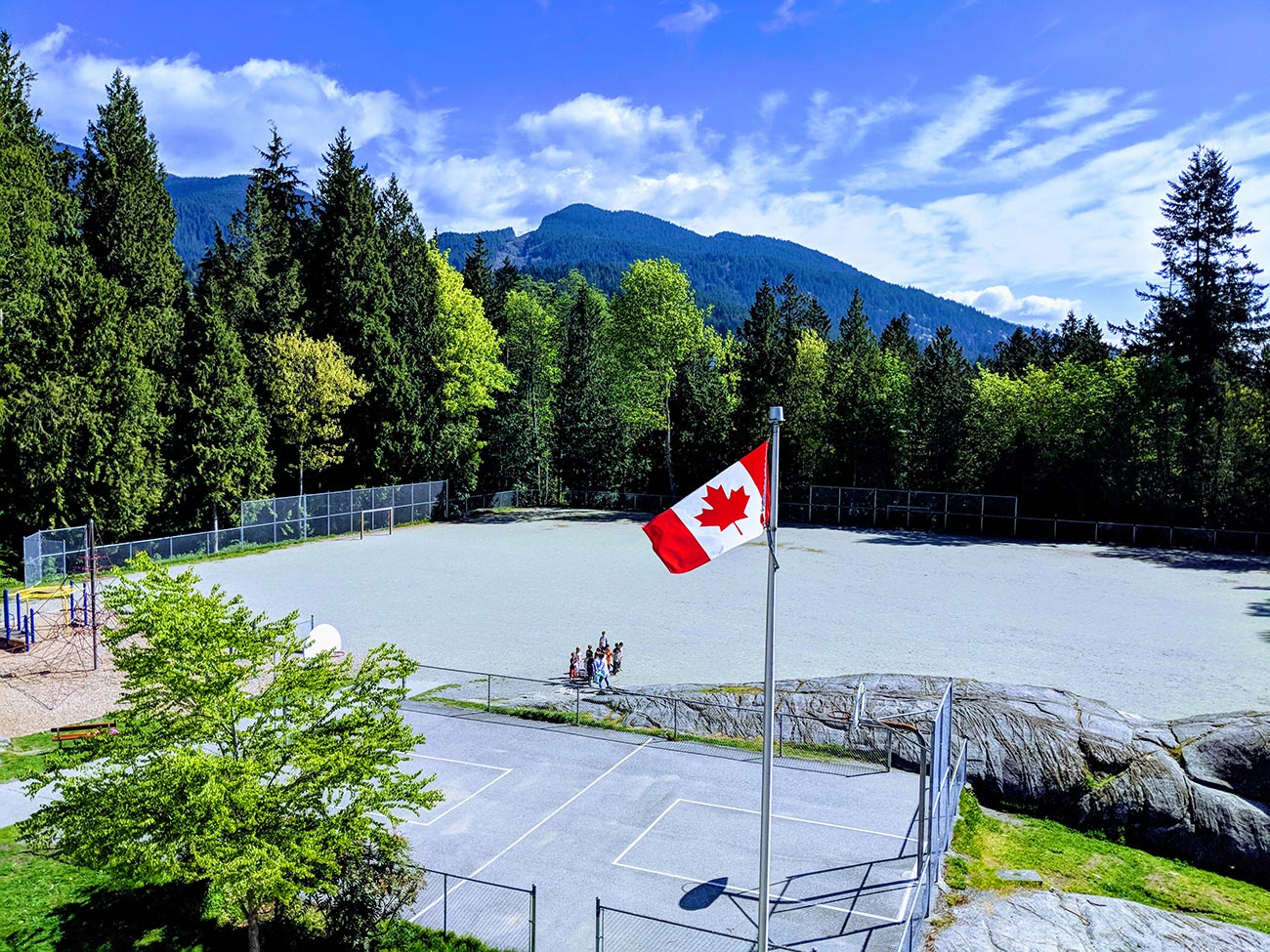
Focus
The 2013-2014 Middle Years Instrument indicates that 47% of our students do not feel connected to two or more adults in the school. We may infer that there is also disconnection between our students. By creating learning opportunities with cross-grade and multi-age groups within our whole school inquiries, we look to develop a stronger sense of community and connection amongst our educational stakeholders. By so through Inquiry, we are building capacity in the implementation of our Inquiry-based model and the new curriculum.
The Learning Commons is meant to create an environment of choice and facilitate cooperation and collaboration. Moving beyond the traditional classroom environment and creating micro-environments (campfire, watchtower, watering hole, office) will foster a greater degree of collaboration and connection between our students.
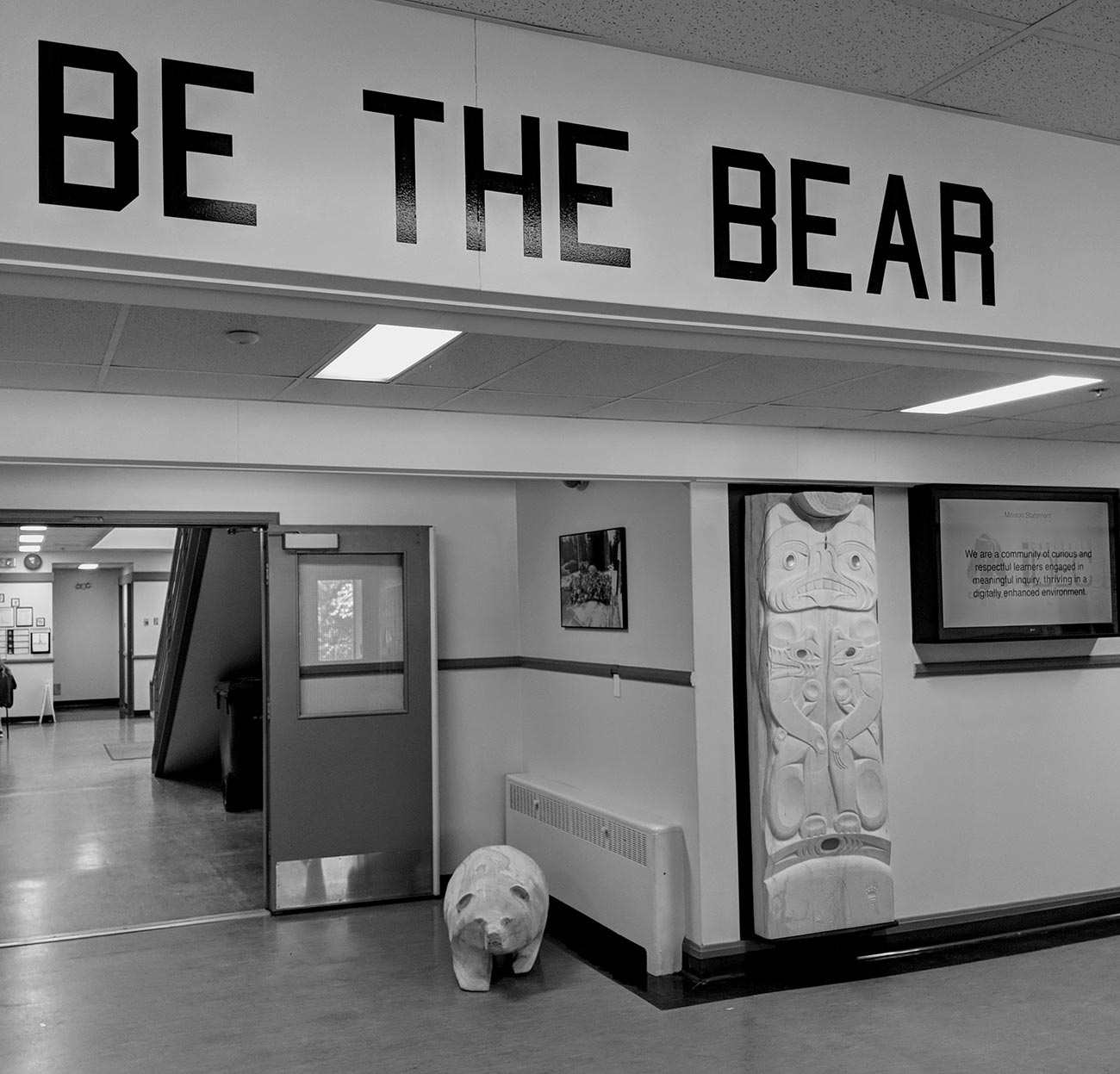
Guiding Questions
Will an emphasize on cross-grade connections through whole school inquiry-based learning create a greater sense of community and connectedness for our students as well as a richer inquiry-based learning experience in our classrooms?
How does the fostering of micro-environments impact inquiry learning, the connectedness of learning and student attitude towards learning?
Will the exploration of a new school identity bring a greater sense of community and sense of place?
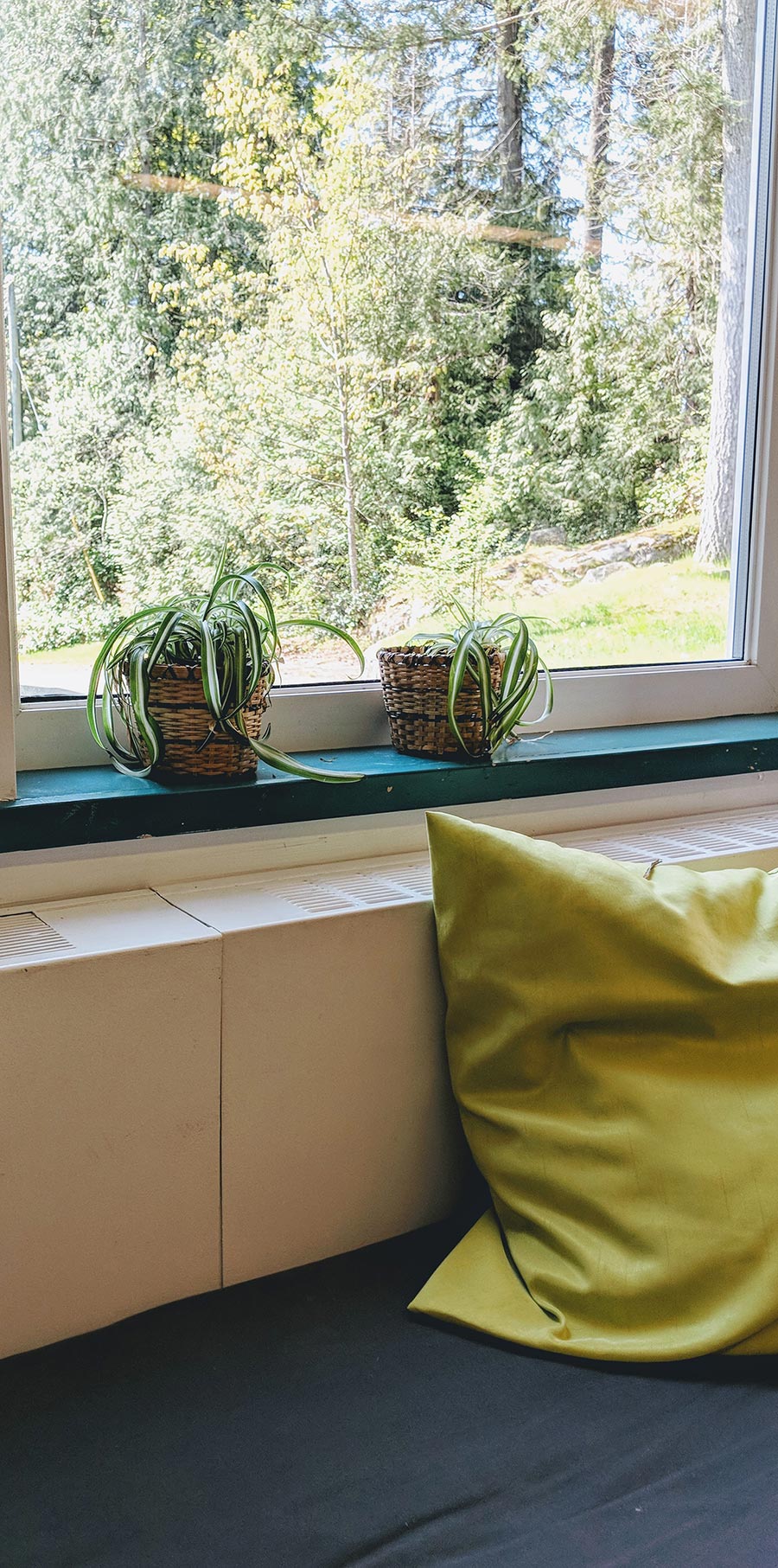
Making it happen
We began our journey three years ago with this video being shown to students, staff and parents. It is a situation we have all been in. Maybe not looking down from the top of a ski jump, but doing something that instilled an element of “hesitation”. No matter the scaffolding of skills or amount of experience, when something new and challenging arises, that fear of the unknown, that fear of failure can surface. The good news is that when you find success, the feeling of accomplishment is overwhelming.
With this, the mantra that guided our actions was “Dare to Go Further”. Caulfeild iDEC is a school that has been innovative in its approach to education for a number of years with very positive results. Like any innovative community, the environment in which we work changes and we must reflect on our successes and assess how we may further meet the needs of our students in reaching their full potential.
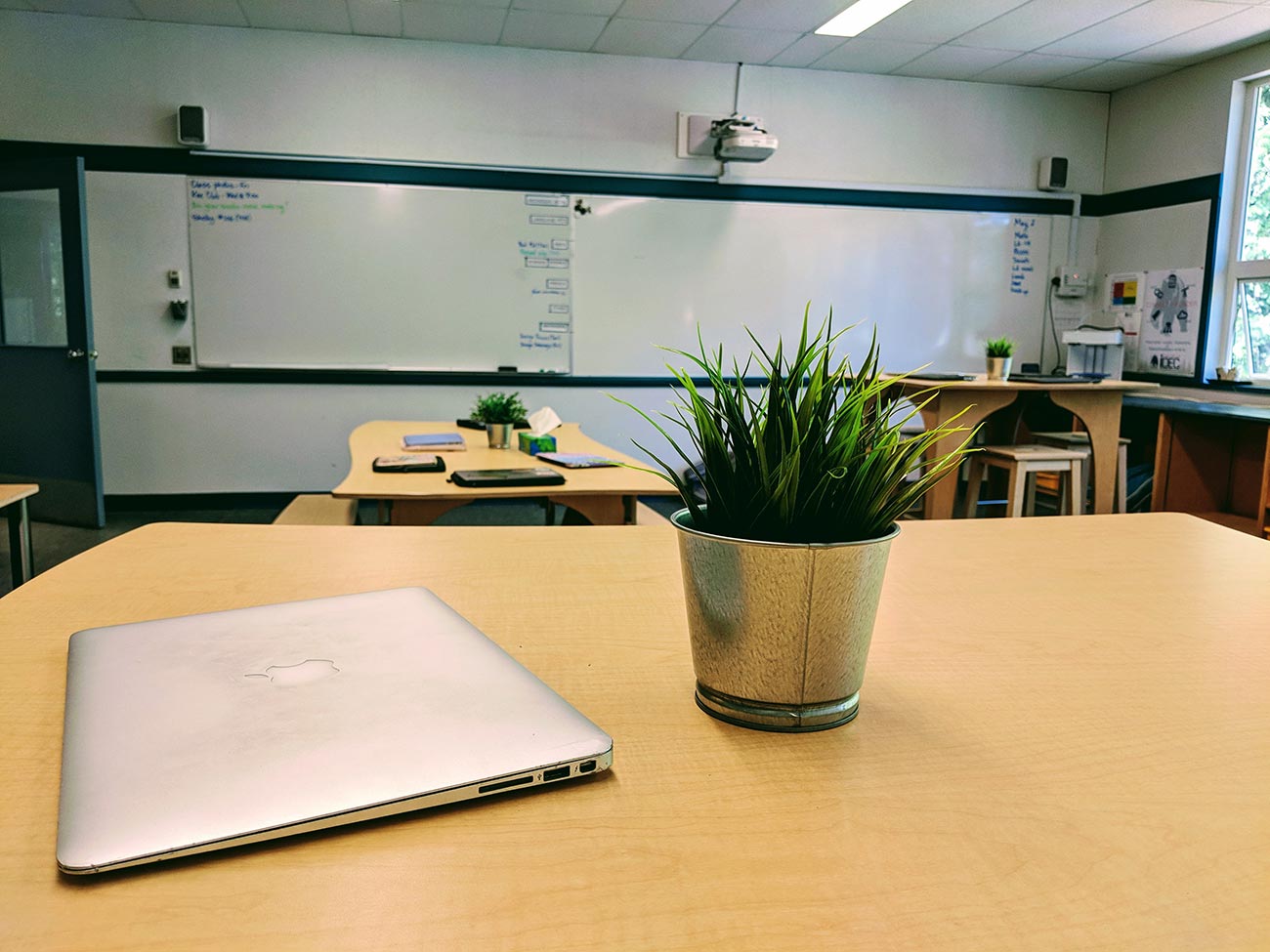
Impact
I see the positive impact of Inquiry learning on my child when…
![]()
They are happy to come to school and talk about what they are learning about.
I see them taking the initiative on their own and an inquiry-driven approach to learn about anything new, no matter how bizarre the question or topic!
He looks for deeper meaning in the world around him.
Her confidence has grown to challenge herself to do her work with less help than usual and take risks in her effort to achieve.
![]()
